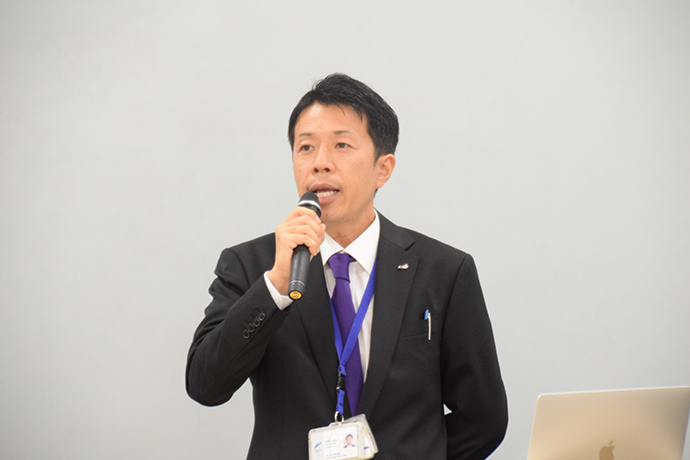Supply Chain Management
Basic Approach
We recognize the importance of promoting sustainability in the supply chain through supply chain management in line with our business activities. We have established a Procurement Policy and Procurement Guidelines and will promote the establishment of a sustainable supply chain through the understanding and cooperation of our business partners.
Communication with Business Partners
Development of Procurement Guidelines and Continuing Communication
When a new transaction is initiated, we ask our business partners for cooperation in promoting an understanding of the content of our Procurement Guidelines. After the transaction has been initiated, we actively communicate with business partners to understand the current state of their sustainability initiatives and issues, to avoid potential risks, and to build long-term, stable relationships.
Engagement with Business Partners
Since FY2022, we have promoted communication by holding an online presentation related to our Procurement Policy, our Procurement Guidelines, and our sustainability initiatives at the continuously held Partner Conference hosted by TIMES COMMUNICATION CO., LTD. This also included feedback from business partners.

Implementation of Monitoring
Starting in FY2022, we have conducted self-assessment questionnaires (SAQ) to business partners to confirm how the environment, human rights, labor, and more in the supply chain have adapted to sustainability elements and to expose risks in the supply chain. In the SAQ conducted in the FY2023, there were no major risks identified among the business partners who participated in the survey. Moving forward, we will continue to build healthy business relationships by continuing to conduct SAQs and engage in communication.
Implementation Flow

Survey Overview
| Format | |
|---|---|
| Format | We conduct surveys using the CSR Procurement Self-Assessment Questionnaire established by Global Compact Network Japan (GCNJ) in 2017. |
| Question Structure | |
| Question Structure | Nine core items were taken based on the ten principles of the Global Compact, ISO26000 and other international guidelines, and CSR surveys from specific industries. The nine items are: 1) CSR-related corporate governance, 2) human rights, 3) labour, 4) the environment, 5) fair business activities, 6) quality and safety, 7) information security, 8) the supply chain, and 9) coexistence with the local community. The survey is set up so that it can be used among buyers and suppliers regardless of the industry. |
Feedback and Improved Communication
Scoring averages and other feedback materials were sent to business partners who participated in the survey. We also established four categories based on SAQ scoring averages, and based on the status of our business partners' initiatives, we also distributed materials and held hearings to promote sustainability and worked to understand and improve the status of sustainability activities in the supply chain.
Employee Training
We provide information through our internal intranet newsletter and offer video training through our internal e-learning system in addition to offering explanations on the importance of human rights and labor issues and the content of our Procurement Policy and Procurement Guidelines at new employee training and other training programs. This is done to increase awareness of human rights and labor issues in the supply chain and to prevent problems from arising.